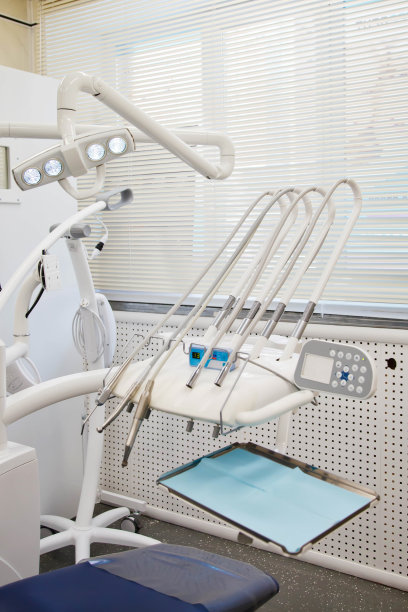Summary: Dental implant treatment has emerged as a revolutionary solution for restoring oral health, offering a myriad of benefits that significantly enhance quality of life. This article delves into the advantages of dental implants, highlights innovative techniques shaping the field, and discusses the transformative impact of these treatments on overall well-being. Additionally, it explores the cost-effectiveness, advanced technology involved, and its promising future in dentistry. As oral health remains a vital component of general health, understanding the efficacy of dental implants provides invaluable insights for patients and clinicians alike.
1. Advantages of Dental Implants for Oral Health

Dental implants play a crucial role in restoring oral function and enhancing the aesthetics of a smile. They provide a permanent solution for missing teeth, which is vital for chewing and speaking. Unlike dentures, which can slip or cause discomfort, implants offer stability and comfort, allowing patients to enjoy their food without worry.
Moreover, they prevent bone loss, a common issue following tooth loss. The root-like structure of implants stimulates the jawbone, maintaining its density and preventing the sunken appearance often associated with missing teeth. This natural integration into the jawbone fosters a healthier oral environment.
Lastly, dental implants improve overall oral hygiene. They can be cleaned like natural teeth, allowing patients to maintain proper oral care without the complications associated with removable prosthetics. This leads to healthier gums and a decreased risk of periodontal disease.
2. Innovative Techniques in Dental Implantology
The field of dental implantology has seen significant innovations that enhance the efficiency and success rates of procedures. One of the notable advancements is the use of 3D imaging and computer-guided surgery. This technology allows for precise planning and placement of implants, minimizing surgical errors and optimizing recovery time.
Additionally, materials used in dental implants have evolved considerably. Zirconia implants, for example, offer a metal-free alternative that is not only aesthetically pleasing but also biocompatible, reducing the risk of allergic reactions and inflammation.
Furthermore, the development of immediate-load implants allows for a quicker restoration process. Patients no longer have to wait for months for their implants to heal before they can enjoy the functionality of their new teeth, allowing for faster recovery and improved patient satisfaction.
3. Cost-Effectiveness of Dental Implants
While the initial investment in dental implants may seem higher than traditional dental solutions, a closer examination reveals their cost-effectiveness over time. Firstly, dental implants are designed to last many years, often a lifetime with proper care, reducing the need for frequent replacements or adjustments seen with dentures and bridges.
Additionally, considering the impact on overall health, dental implants can save costs associated with treating complications from missing teeth, such as gum disease or jaw deterioration. Patients with implants often experience fewer dental visits due to lower incidences of related health issues, translating into further savings.
Insurance coverage is also becoming more inclusive when it comes to dental implants, making them a more financially accessible option. As awareness of their benefits grows, more dental plans are beginning to offer partial coverage for this transformative procedure.
4. The Future of Dental Implants and Oral Health
The future of dental implants appears promising, fueled by ongoing research and technological advancements. Innovations such as smart implants equipped with sensors hold potential to monitor oral health in real time, providing valuable data that can guide preventive oral care.
Additionally, regenerative medicine is paving the way for enhanced integration and healing. The use of stem cells and growth factors during the implantation process could improve the success rates and reduce recovery times even further.
Educational initiatives are also increasing awareness among patients regarding the importance of oral health and the role of dental implants in achieving it. As individuals prioritize their health and well-being, the demand for high-quality dental implant treatments will continue to rise.
Summary:
In conclusion, dental implants not only restore function and aesthetics but also promote long-term oral health. The advantages, innovative techniques, cost-effectiveness, and future advancements in dental implant treatment indicate a significant leap forward in oral health restoration. As more people gain understanding and access to these options, the impact on quality of life will be profoundly positive.
This article is compiled by Vickong Dental and the content is for reference only.
Vickong Dental
Vickong Dental is a large medical group established in Hong Kong in 2008 by professors from well-known medical universities in Guangdong and Hong Kong, as well as medical doctors from key national '985' universities (including Master's supervisors and senior professors). The chain of branches brings together expert dentists with PhDs and Master's degrees from Hong Kong and Mainland China, committed to providing high-quality dental treatment.
"Vickong Dental Practices the University Motto of 'Healing and Serving Society,' with a Stable Operation for Sixteen Years. It Has Been honored with Hong Kong Enterprise Leaders's Choice,' and is a Global Trusted Implant Center for the Nobel Implant System. Recommended by Hong Kong Metro Broadcast and Guangdong Television, it Serves Customers from Over Thirty Countries and Regions, Gaining the Trust and Favor of Citizens from the Guangdong-Hong Kong-Macau Greater Bay Area and Surrounding Cities.

Thousands of customers' unanimous praise
The most recognized and highly recommended dental service by customers in the Guangdong-Hong Kong-Macau Greater Bay Area
We Ensure You Receive Detailed Care and Attention Here
Hong Kong standards, Shenzhen prices, Your Trusted English-speaking dentists

Vickong Dental Medical-Grade Instrument Disinfection Process
Vickong Dental Medical-Grade Instrument Disinfection Process

Vickong Dental Chain: A Warm and Comfortable Environment for Treatment






Appointment Hours

Q&A
Why choose Vickong Dental?
Vickong Dental practices the university motto 「Medicine to Benefit Society」, with each branch bringing together highly qualified dentists with doctoral and master’s degrees from Hong Kong and the Mainland, and has maintained seventeen years of steady operation。Recipient of 「2024 Hong Kong Enterprise Leaders Brand」, 「2025 Hong Kong Enterprise Leaders Brand」, a Nobel Biocare Global Trusted Implant Center, and a brand recommended by Metro Radio Hong Kong and Guangdong TV。
To date, we have served customers from more than thirty countries and regions,earning exceptionally high word-of-mouth recognition and trusted recommendations from residents across the Guangdong-Hong Kong-Macao Greater Bay Area and surrounding cities
We have eight major branches in Zhuhai、Shenzhen,and a consultation and service assurance center in Hong Kong,so you can book a free consultation at any time for any questions,which is very reassuring.
If I do not accept the quotation after the CT scan, will I be charged??
No! As long as the actual treatment has not started, you will not be charged any fees.
Will there be any additional charges during the treatment process?
No, there won’t be any additional charges. Before treatment begins, we will clearly explain the treatment plan and its corresponding fees. Only after the patient agrees and signs the consent form will we proceed with the dental service.
Can I pay in Hong Kong dollars?
Yes. Vickong Dental accepts payment in Hong Kong dollars. The amount will be converted based on the exchange rate of the day, and the applicable rate will be clearly communicated to you in advance.
Can I reschedule my appointment at any time?
Yes. Please contact us via **WeChat** or **WhatsApp** as early as possible, providing your original appointment time and details, along with your preferred new date and time slot for rescheduling.













